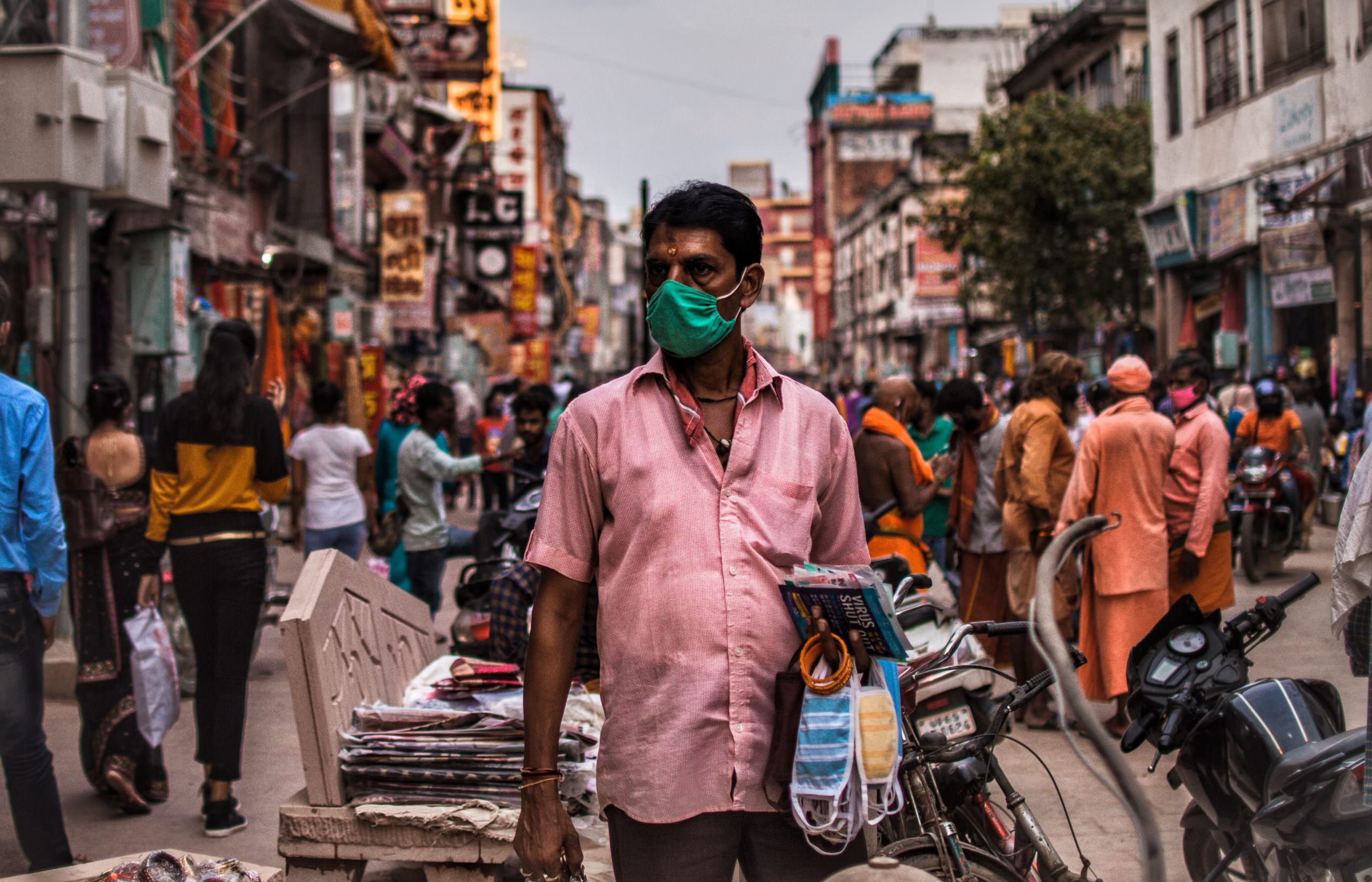
In response to the alarming resurgence of COVID-19 in India, authors drawn from the The Lancet Citizens’ Commission on Reimagining India’s Health System and its network of fellows have proposed eight urgent recommendations to help manage the pandemic’s spread. These recommendations, published in an article in The Lancet, are focused on the immediate steps central and state governments must take to help curtail the loss of life and suffering caused by COVID-19 amid the recent surge in cases. The article synthesizes and amplifies the suggestions already being made by grassroot workers and experts across the country.
The humanitarian crisis the resurgence has precipitated requires all persons in central and state governments to set aside their political differences and work in solidarity with each other, and with civil society, to implement the eight clearly articulated recommendations in our article.
The recommendations span a wide gambit of actions that must be taken to manage the situation: first, the organization and financing of essential health services must be decentralized to districts; second, there must be a transparent national pricing policy and caps on the prices of all essential health services; third, clear, evidence-based information on the management of COVID-19 be widely disseminated, including guidance on what not to do; fourth, all available human resources, including the private sector, must be marshalled for the COVID-19 response and adequately resourced and supported; fifth, central systems to procure and distribute COVID-19 vaccines free of cost should be established in a departure from the current policy of decentralized procurement through state governments; sixth, community engagement and public participation must lie at the heart of India’s COVID-19 response, with no restrictions on civil society organizations to access resources; seventh, there must be transparency and sharing of government data to enable districts to proactively prepare for the likely caseloads in the coming weeks and surveillance needs to include urgent investment in genomic sequencing; finally, the profound suffering and risk to health caused by loss of livelihoods should be minimized by making provisions for cash transfers by the state to workers in India’s vast informal economy who have lost their jobs and requiring businesses not to lay-off their workers.
These recommendations reflect the collective wisdom of twenty-one experts (full list of authors appended below) from India across academia, civil society, and the private sector, including many who have played leadership roles in India’s health system.
Authors of the Comment
Armida Fernandez, Retired Professor, Neonatology and Dean, Lokmanya Tilak Municipal Medical Hospital and College, Mumbai, India; Founder Trustee, SNEHA, Mumbai, India
Arnab Mukherji, Professor of Public Policy, Center for Public Policy, IIM Bangalore, Bengaluru, India
Atul Gupta, Assistant Professor of Health Care Management, The Wharton School, University of Pennsylvania, Pennsylvania, USA
Bhushan Patwardhan, Distinguished Professor, Interdisciplinary School of Health Sciences, Savitribai Phule Pune University, Pune, India; Chair, Interdisciplinary AYUSH Research and Development Task Force of Ministry of AYUSH
Devi Shetty, Chairman, Narayana Hrudayalaya Limited, Bengaluru, India
Gagandeep Kang, Clinician Scientist and Professor in the Department of Gastrointestinal Sciences, Christian Medical College, Vellore, India
K. Sujatha Rao, Former Secretary of Health and Family Welfare, Government of India, New Delhi, India
Kiran Mazumdar-Shaw, Executive Chairperson, Biocon Ltd., Bengaluru, India
Leila E. Caleb Varkey, Senior Advisor Reproductive Health, Centre for Catalyzing Change, New Delhi, India
Mirai Chatterjee, Director, Social Security Team, Self-Employed Women’s Association (SEWA), Ahmedabad, India
Nachiket Mor, Visiting Scientist, The Banyan Academy of Leadership in Mental Health, Bengaluru, India
Poonam Muttreja, Executive Director, Population Foundation of India, New Delhi, India
S.V. Subramanian, Professor of Population Health and Geography, Harvard Center for Population and Development Studies and Department of Social and Behavioral Sciences, Harvard T.H. Chan School of Public Health, Cambridge, USA
Sandhya Venkateswaran, Independent Policy Researcher, New Delhi, India
Sapna Desai, Associate, Population Council, New Delhi, India
Sharad Sharma, Co-founder, iSPIRT Foundation, Bengaluru, India
Tarun Khanna, Jorge Paulo Lemann Professor, Harvard Business School; Director, The Lakshmi Mittal and Family South Asia Institute, Harvard University, Cambridge, USA
Thelma Narayan, Director, Academics & Policy Action, SOCHARA, Bengaluru, India
Vijay Chandru, Adjunct Professor, Interdisciplinary Research, Indian Institute of Science, Bengaluru, India
Vikram Patel, The Pershing Square Professor of Global Health, Harvard Medical School; Professor, Harvard T.H. Chan School of Public Health, Cambridge, USA; Cofounder, Sangath, Goa, India
Yamini Aiyar, President and Chief Executive, Centre for Policy Research, New Delhi, India
